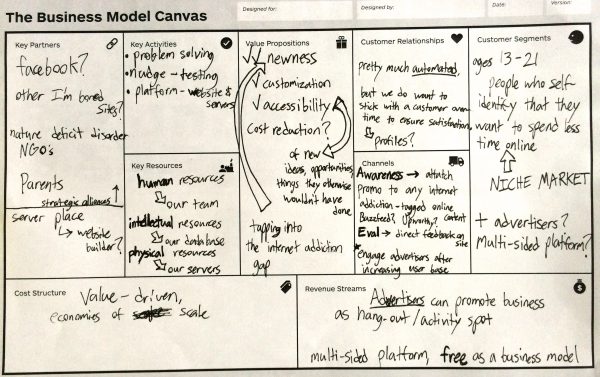If you are part of a large organisation you probably won’t know the specifics however, in general terms, you probably follow a similar business model to the rest of your competitors.
Does your business model still work?
Big banks follow the same basic methodology as everyone else in their field as do investment houses, insurance companies, accountants, solicitors…and so the list goes on. Therefore most businesses are caught and spend their days in executing business models. They follow a fairly standardised model accepted across their sector. This is why change or an alteration in their course is so hard to achieve.
Now think about the disruptors that have shown themselves in recent years. Uber, AirBNB, Fintech’s etc. These companies are not following a standardised model. In fact, when they started, I doubt that they had even conceived a business model at all. They were in the process of discovering what their business model was which left them free to try things out and find what worked and what didn’t. Hence they were able to angle themselves into industries with new, fresh outlooks and new ways of doing things which caught their larger competitors by surprise. Consequently, they stole a sizeable, sometimes huge, chunk of that particular market share.

Discover your business model and become an industry leader
When you are discovering your business model you are unencumbered by all the things that weigh down your competitors. You may have to make room for concerns such as regulation and legalities but for the most part you are able to play and experiment with what you are offering and then provide your consumer, user, client with exactly what they are looking for.
Disruptors such as these also, in the main, have the advantage of being small, are agile and nimble enough to adapt to changing circumstances and demand. However, the most successful ones don’t then sit back and follow the same business model year on year. They are always looking forward, testing the water with new ideas, new avenues, different structures to see where they can go next (think Netflix – from video hire to streaming).
Business models should be a journey of discovery and one that never finishes unless you want to become stale, static and eventually irrelevant.

Don’t get overtaken by competitors, adapt your business model
There are no reasons why larger or established companies can’t adopt the discovery attitude. It doesn’t mean they having to instigate major upheaval or close down in anyway. What they do need to do is look at start-ups and pay attention to the new skills they display, especially mind set. Setting aside a few people and resources, perhaps a separate department, dedicated to the concepts of discovery, change and disruption could work wonders and catapult your business forward.
So my question to those of you in larger institutions out there is; are you courageous enough to experiment? If your business model isn’t working, do you have the foresight to change it?

